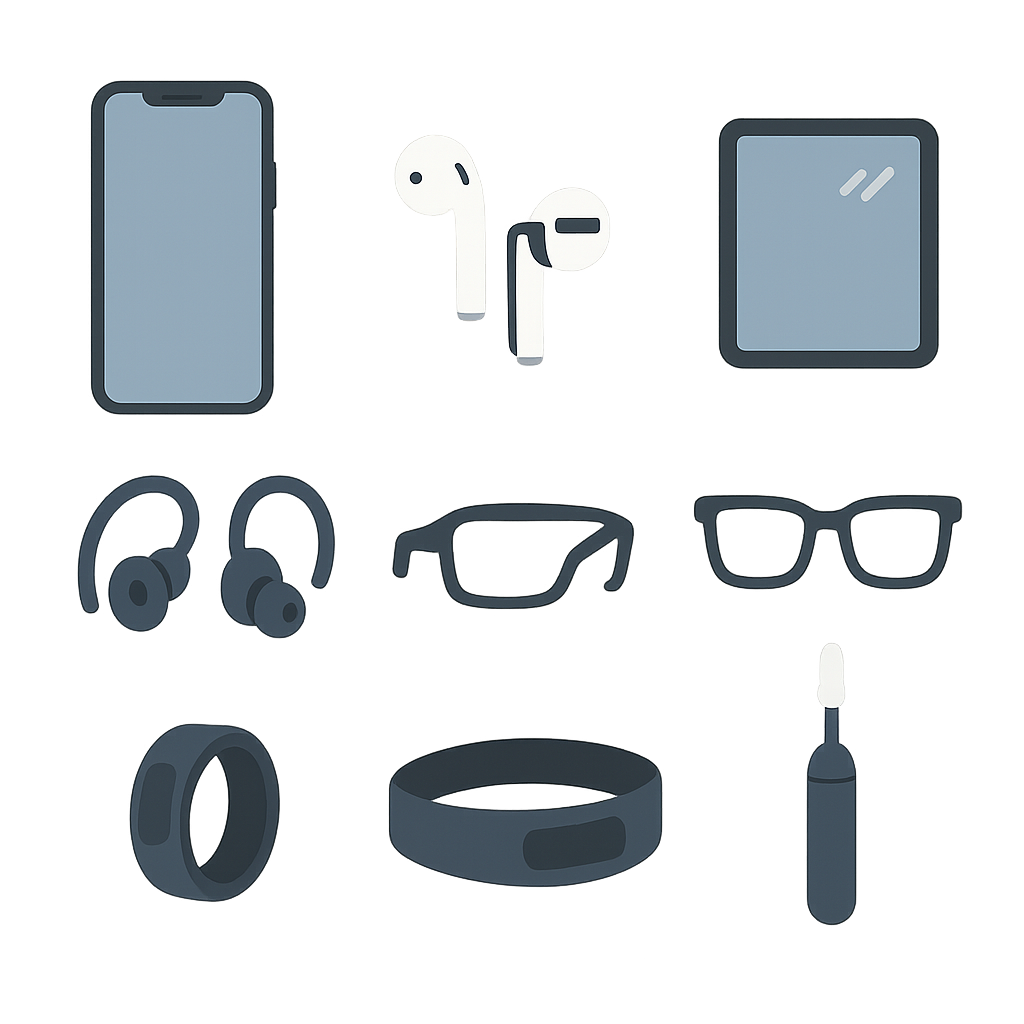September 2025 Health Tech Roundup: What's Actually Worth Your Attention
This month's announcements include heart-monitoring earbuds from Apple and smart glasses getting easier VA access—here's what seniors need to know
Let's be honest: most new technology feels like it was designed by 20-somethings who think we're all tech wizards. But we found some refreshing news about health technology that's actually built with seniors in mind—devices that solve real problems without requiring a computer science degree to operate.
What's Actually Available Right Now
Apple's New iPhone 17 and AirPods Pro 3 were just announced on September 9th, and for once, Apple seems to get what we need. The AirPods Pro 3 now monitor your heart rate right through your ears—no chest straps, no wrist devices that constantly need charging. Just put them in and go about your day while they keep track of your cardiovascular health. The iPhone 17's improved camera makes video calls with doctors and grandchildren crystal clear, even if your hands shake a bit. Sometimes the simplest improvements make the biggest difference.
XanderGlasses Connect got some well-deserved attention this week, particularly for veterans who can now get them through the VA system with less paperwork hassle. At $4,999, they're not cheap, but if you've been struggling with hearing loss, these smart glasses might change your life. They put live captions right in your field of vision—imagine never missing another word at a doctor's appointment or family gathering. No smartphone required, no complicated setup. Just put them on and suddenly you can follow conversations again.
The truth is, most other "new" products getting buzz recently are just marketing pushes for existing technology. We've all seen that before—companies repackaging the same devices with new claims about helping seniors.
What's Coming Soon (And Worth Waiting For)
Now here's where things get interesting. Several companies are finally developing products that address real senior concerns instead of trying to turn us into fitness fanatics.
The Withings Omnia AI Smart Mirror sounds like science fiction, but it's actually practical. Step in front of this full-length mirror each morning, and it quietly measures your weight, checks your heart health, and monitors body composition changes—all without buttons to push or apps to download. The mirror talks to you in plain English, giving health recommendations you can actually understand. No release date yet, but this could revolutionize how we track our health at home.
NextSense Tone Buds tackle something we all struggle with more as we age: getting good sleep. These $349 earbuds use actual medical-grade technology to monitor your brain waves while you sleep, then play specific sounds to help you fall asleep faster and sleep more deeply. They're available for preorder now but won't ship until early next year.
The Circular Ring 2 is currently shipping to customers and represents the first smart ring with FDA-approved heart rhythm monitoring—specifically designed to catch atrial fibrillation, something that becomes more common as we age. At $349, it's cheaper than most smartwatches and doesn't require a monthly subscription fee. What makes this particularly exciting is that the company plans to add blood pressure monitoring by the end of 2025 and blood glucose trend tracking in late 2026—features that could revolutionize how we monitor our health at home.
Frenz Brainband looks a bit odd—like a headband you wear to bed—but it addresses a critical need. This $680 device monitors your brain waves, eye movements, and facial muscles during sleep, then uses bone-conduction speakers to play personalized audio that helps you achieve deeper, more restorative sleep. For those of us dealing with sleep issues, this might be worth the investment.
Finally, there's the Bebird EarSight Flow, which won an innovation award for solving a problem we don't like to talk about: safely cleaning our ears. This device has a tiny camera that connects to your smartphone, letting you see inside your ear while cleaning it safely. Sometimes the most practical innovations are the most valuable.
The Bottom Line
What's encouraging about these new health technologies is that they're focusing on prevention and early detection rather than just tracking steps or counting calories. They're designed to help us maintain independence and catch health issues before they become serious problems.
The best part? Most of these devices are being designed with simple interfaces and clear instructions—because the companies finally realize that complicated technology doesn't help anyone, regardless of age.
As someone who's seen plenty of overhyped gadgets come and go, these products seem different. They're addressing real health concerns with practical solutions, not trying to turn us into data-obsessed fitness trackers. That's progress we can actually use.


